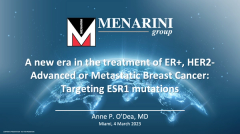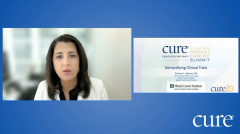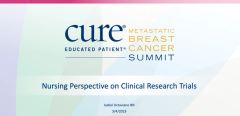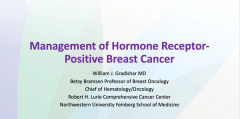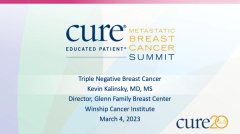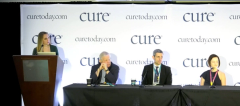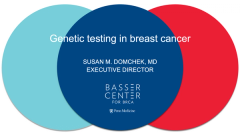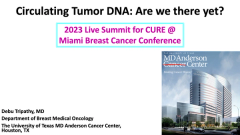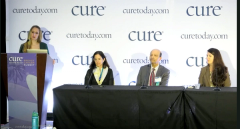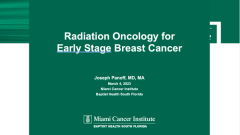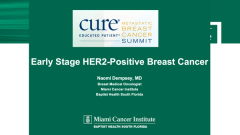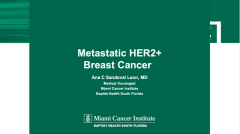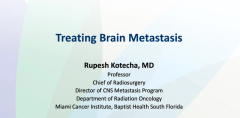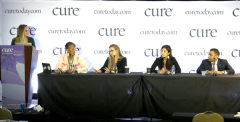
Educated Patient® Breast Cancer Summit at MBCC Genetic Testing Presentation: March 4, 2023
Watch Dr. Susan Domchek, from Penn Medicine, discuss genetic testing during the CURE Educated Patient® Breast Cancer Summit at MBCC.
Episodes in this series

As genetic testing becomes more available — and affordable — for patients with cancer, it is essential to discuss results with health care teams to better understand the significance, explained Dr. Susan Domchek.
“Cancer is a disease of genetic abnormalities,” Domchek, executive director of the Basser Center for BRCA and director of the MacDonald Women’s Cancer Risk Evaluation Center at Penn Medicine in Philadelphia, said in a presentation at the CURE® Educated Patient® Breast Cancer Summit, held live and virtually at the Miami Breast Cancer Conference.
There are two types of genetic mutations that clinicians look for: somatic, which are acquired mutations that occur in the tumor and cannot be passed down to offspring, and germline mutations, which are inherited and found in all cells throughout the body.
“When we talk about genetics, we often just throw it all up as the same thing, but it's really important to differentiate genetic mutations in tumors from the gene mutations that you're born with,” Domchek said.
The first step a patient should take in genetic testing is talking with their provider to determine if they are eligible for it. Current recommendations insist that anyone with metastatic breast cancer, triple-negative disease, those with Ashkenazi Jewish heritage, or those with a family history of ovarian, pancreatic or metastatic prostate cancer should be tested.
“The important thing here is not to memorize this list, the important thing is to ask your physicians whether it would be helpful for you to undergo germline testing in your care,” Domchek said.
Insurance typically covers testing for recommended patients, and the average cost is about $80, Domchek noted. If someone is not eligible for testing — such as those with early-stage breast cancer — there are other genetic testing options available for approximately $250.
When the results come back, Domchek mentioned that “not all genes are made equal,” and only some genetic mutations will affect treatment. Namely, if genetic testing comes back stating that a disease has a mutation in the BRCA1, BRCA2 or PALB2 gene, then the patient would be eligible for treatment with a PARP inhibitor.
Additionally, patients with ATM or CHEK2 mutations may be recommended to have a bilateral mastectomy — a surgery to have the tissue from both breasts removed — to prevent a secondary diagnosis.
However, Domchek mentioned that there may not be an increased risk for patients with an ATM mutation, and that those with CHEK2 mutations have about a 20% increased risk of a secondary breast cancer over 20 years.
“So all these factors need to be considered. And again, it's really important to have posttest education to to talk about what all this means,” Domchek said.
For more news on cancer updates, research and education, don’t forget to

